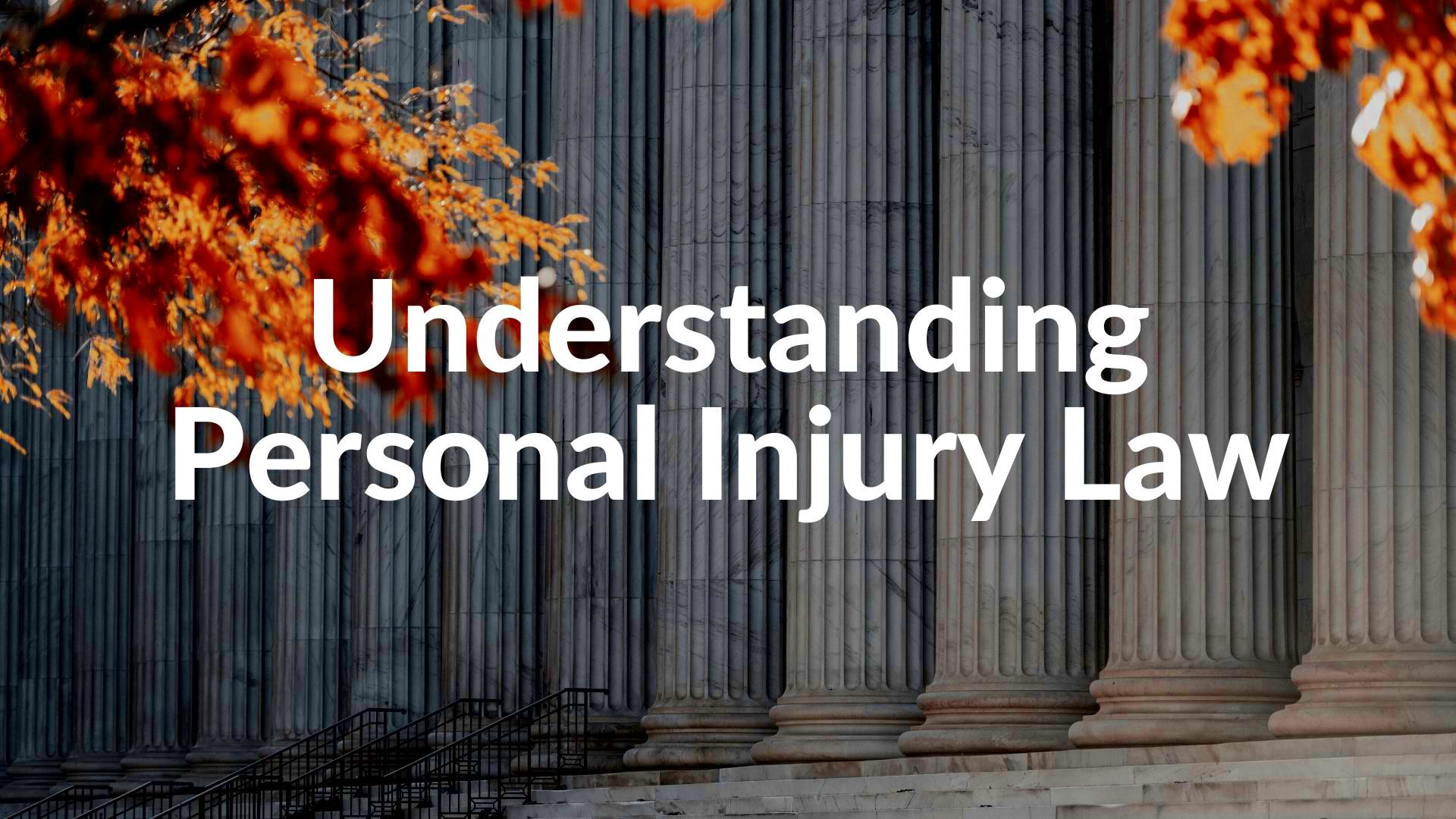Key Aspects of Colorado Personal Injury Laws
In Colorado, personal injury laws protect people that are harmed as a result of other people’s negligence or wrongful acts. Under these laws, victims have an option to demand compensation for their injuries that may include hospital bills, lost salaries and various pains. Having knowledge of how these laws function will enable one to understand better the legal avenues when they eventually come across a situation which requires them to make a claim.
Understanding Negligence in Personal Injury Cases

Negligence is an essential term in the realm of personal injury lawsuits. It is defined as the lack of taking due precaution that causes injury or damage to someone else. For one to prove that there was negligence, he/she needs to show four things:
- Duty of Care: The responsible party had a legal obligation to act in a certain way to avoid harming others.
- Breach of Duty: The responsible party failed to meet that obligation through action or inaction.
- Causation: There must be a direct link between the breach of duty and the injury sustained.
- Damages: The injured party must have suffered actual harm or loss.
Anyone pursuing a personal injury claim in Colorado must have an understanding of these elements since they are the backbone of their case.
Types of Personal Injury Claims in Colorado
Personal injury claims in Colorado often originate from various types of scenarios. You can find some common examples below:
- Car Accidents: These are among the most frequent personal injury cases, often caused by negligent driving, such as speeding or distracted driving.
- Slip and Fall Cases: Property owners may be held liable if someone is injured due to unsafe conditions on their property.
- Medical Malpractice: Healthcare providers can be sued if they fail to provide the standard level of care, resulting in patient harm.
- Workplace Injuries: Employees injured on the job may have claims against their employers or third parties.
- Dog Bites: Dog owners can be held responsible for injuries caused by their pets under Colorado law.
As such an expert would know, different types of claims have different requirements and processes under the law; hence why it is imperative to engage the services of an experienced legal mind who specializes in matters related to personal injury law in the state of Colorado.
The Importance of Statute of Limitations
The statute of limitations refers to the time limit within which a person can file a lawsuit. In Colorado, personal injury claims must be filed within a specific period, usually two years from the date of the injury. Understanding this timeframe is crucial because missing it can result in losing your right to seek compensation.
Some important facts about Colorado’s statute of limitations:
- Different Time Limits: Some claims may have different deadlines. For example, claims against government entities may have a shorter limit, often six months.
- Tolling: In certain circumstances, the statute of limitations may be paused, or “tolled.” This can happen if the injured person is a minor or if the responsible party is not in the state.
- Legal Advice: Consulting with an attorney as soon as possible can help you understand the timeline relevant to your case and ensure you don’t miss any important deadlines.
The law protecting you from the ravages of time is your weapon that can lead to timely measures of defense in addition to restoring your due favor.
How to Prove Fault in Personal Injury Cases
In order to receive compensation, it is important to establish fault in a personal injury case. Following these steps will help you prove fault:
- Gather Evidence: Collect any evidence related to the incident. This can include photos, videos, witness statements, and police reports.
- Establish Duty of Care: Show that the other party had a legal obligation to act in a certain way to avoid causing harm.
- Demonstrate Breach of Duty: Provide proof that the other party failed to meet their duty of care, such as through negligent actions or inactions.
- Show Causation: Clearly link the breach of duty to your injuries. This may involve expert testimony or medical records.
- Document Damages: Keep detailed records of your injuries, medical treatments, and any financial losses. This helps to quantify your claim.
Proving a fault can be complex and engaging in a legal tussle with an experienced personal injury attorney can significantly enhance the strength of the case.
Compensation Available for Victims
In the event that you win your case regarding personal injury, then there are various compensations that you can be entitled to. This is a summary of what you can demand:
| Type of Compensation | Description |
|---|---|
| Medical Expenses | Coverage for all medical bills related to your injury, including hospital stays, surgeries, and rehabilitation. |
| Lost Wages | Compensation for income you lost due to being unable to work after your injury. |
| Pain and Suffering | Damages for physical pain and emotional distress caused by the injury. |
| Future Medical Expenses | Compensation for ongoing or future medical treatments that may be required as a result of your injury. |
| Loss of Enjoyment | Compensation for loss of enjoyment in life and activities due to your injuries. |
Subtle differences in the particulars of any action present the possibility that different plaintiffs could be entitled to awards which will vary based on considerations such as how catastrophic their injuries are along with what caused them. This means that if you have an accident, its severity and associated circumstances may determine what kind of damages are awarded. If in doubt about your likely compensation payout, seek legal help from a competent lawyer to get clearer answers as to where your compensation might start or end.
The Role of Insurance in Personal Injury Claims
Insurance is a critical aspect of personal injury claims in Colorado. When an individual sustains injuries due to someone else’s negligence, insurance firms usually play a role in catering for the expenses related to the injury. Understanding how these insurance procedures function can help you move through the process of claiming later on more successfully.
Some important aspects of the significance that the insurance has in such cases include:
- Liability Insurance: Most drivers in Colorado are required to have liability insurance. This insurance can help cover damages if they are found responsible for an accident.
- Claims Process: After an injury, you or your attorney will file a claim with the at-fault party’s insurance company. This process often involves negotiating for a fair settlement.
- Policy Limits: It’s important to know that insurance policies have limits. This means the insurer will only pay up to a certain amount, which may not fully cover your damages.
- Uninsured/Underinsured Motorist Coverage: This type of coverage is crucial if the at-fault party lacks sufficient insurance. It can help you recover costs when the other driver cannot.
- Bad Faith Claims: If an insurance company fails to handle your claim fairly, you may have grounds for a bad faith claim against them.
By understanding the workings of insurance, one can enhance his or her chances of getting a high settlement and getting to know whether he or she is being given the right compensation.
Frequently Asked Questions About Personal Injury Laws
When it comes to the personal injury laws in Colorado, there are a lot of questions from various people. Below are some common queries with simple responses:
| Question | Answer |
|---|---|
| What should I do after an accident? | Seek medical attention, document the scene, gather witness information, and consult with a personal injury attorney. |
| How long do I have to file a claim? | In Colorado, you generally have two years from the date of the injury to file a personal injury claim. |
| Do I need an attorney? | While it’s not mandatory, having an experienced attorney can help you navigate the legal process and increase your chances of receiving fair compensation. |
| What if I was partially at fault? | Colorado follows a modified comparative negligence rule, meaning you can still recover damages as long as you are not more than 50% at fault. |
| Will my case go to trial? | Most personal injury cases are settled before trial, but if a fair settlement cannot be reached, going to trial may be necessary. |
For making clarity on such, it better to know that these are the questions which will help in untangling injuries to the body and making the correct decisions.
Conclusion on Personal Injury Laws in Colorado
You know what? As far as I’m concerned, the personal injury laws in Colorado are of utmost importance when it comes to protecting the rights of those who have been injure by negligence. If you lose the right to make a claim on time, it wouldn’t matter whether you were entitled to education, health care or simply bread. Understanding your legal rights and processes could help you get better compensation at all. Here are some key points:
- Act Quickly: Be aware of the statute of limitations and take action promptly.
- Gather Evidence: Document everything related to your case, as evidence is crucial for proving fault and damages.
- Consult a Professional: Engaging with a knowledgeable personal injury attorney can guide you through the complexities of your case.
- Understand Your Compensation: Be informed about the types of damages you can claim and ensure you pursue all avenues of compensation.
With the right knowledge, you can move through the personal injury process with security, since you will be able to take steps that may result into better outcome after an injury. For this reason, it is very important to know that you are not alone in this journey; there are many sources of help available for all those involved in such issues.


